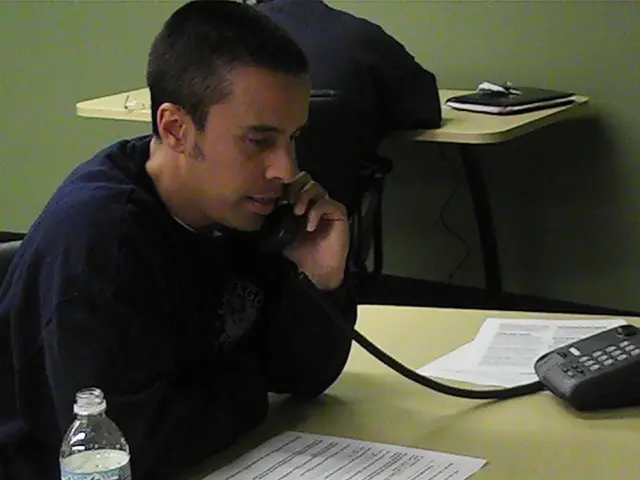Discussion between Nadella and Zuckerberg Regarding AI's Influence on Software Coding
In the ever-evolving landscape of technology, Artificial Intelligence (AI) is making its mark, not just as a technological innovation, but as a cultural change that is reshaping the way businesses operate.
Microsoft, a tech giant, has embraced AI wholeheartedly. According to its CEO, Satya Nadella, AI contributes to 20-30% of the code being written at the company, a figure that is steadily increasing. This integration is not a mere adoption of new technology, but a cultural shift that demands adaptation from companies, employees, and society.
Similarly, Mark Zuckerberg, CEO of Meta, has expressed that half of Meta's development could be done by AI in the next year. Both companies are exploring the role of AI in replacing certain aspects of human-driven software development. However, Meta's extensive use of AI in code development is not without challenges. These challenges have led to hiring freezes and a shift towards improving AI teams before advancing further. The exact percentage of Meta's code being generated by AI remains undisclosed.
The tech industry is also leveraging AI for various operational tasks. From customer service to generating sales pitches and automating software development, AI is proving to be a valuable tool. Businesses are finding that AI can enhance efficiency and reduce costs, but it also underscores the importance of maintaining skilled human talent for tasks that demand creativity, critical thinking, and problem-solving.
The evolving relationship between humans and machines will continue to shape the future of work. As AI becomes more integrated, conversations about how companies, employees, and society adapt to this new era are becoming increasingly prominent. The growing reliance on AI in the tech industry raises questions about the future of human workers, and the industry is left grappling with these complex issues.
In conclusion, the integration of AI in the tech industry is a cultural change that is shaping the future of work. As we move forward, it is essential to strike a balance between leveraging AI for efficiency and preserving the role of human talent in areas where creativity, critical thinking, and problem-solving are paramount. The future of work will be defined by this evolving relationship between humans and machines.
Read also:
- Industrial robots in China are being installed at a faster rate than in both the United States and the European Union, as the global market for these robots faces a downturn.
- Hyundai N affirms transition to hybrid performance-centric models, initiating with Tucson N
- Stock markets in India anticipated a moderate opening, influenced by mixed signals from global markets.
- EV Charging Network Broadens Reach in Phoenix, Arizona (Greenlane Extends Electric Vehicle Charging Infrastructure in Phoenix)








